Is it Bad to Shave or Remove Pubic Hair?

To shave or not to shave your pubic hair… that is the question! There is a lot of debate on this topic, and women have a lot of questions about it.
Do you let it grow, or do you shave it completely? Women who let it grow say that it protects them from infections, and those who shave say they do it for aesthetic reasons.
Is it bad to shave or remove pubic hair? We reveal all (if you pardon the pun) in this article!
The reason we have pubic hair
Our bodies didn’t leave anything to chance when they were created, but a lot of women (and a growing number of men) are deciding to shave their intimate areas. In order to make a personal decision about shaving, it’s best to get informed about the pros and cons.
What isn’t good is to base your decision on what’s currently in fashion.
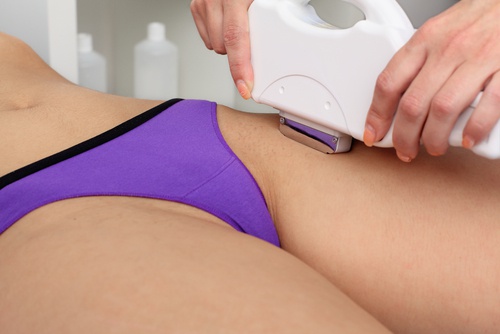
- Creating a barrier to prevent external bacteria or viruses that cause infections or diseases.
- Maintaining a pleasant and appropriate temperature for female genitalia to function properly.
- Retaining personal odors (created by pheromones) that transmit sexual signals to stimulate a partner’s libido.
- Preventing irritation in the genital area during sex, as friction could cause redness and discomfort.
Reasons for not shaving pubic hair
If you’re still not convinced about whether you want to remove your pubic hair or not, have a look at these reasons, because we think they’ll convince you that it’s better to leave things as they are (or, simply trim them back a bit).
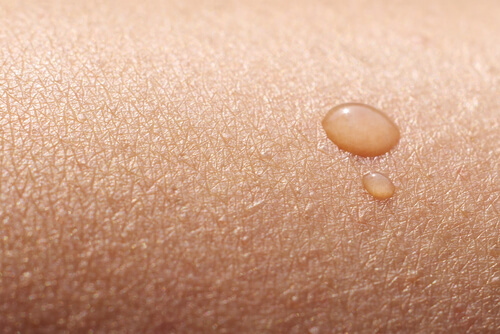
Your skin suffers
Getting rid of pubic hair irritates and inflames hair follicles, leaving open wounds that aren’t seen by the naked eye. Constant shaving also causes painful ingrown hairs. You can also get burns if using wax, and cuts if using a razor.
It accelerates the production of bacteria
Wax hair removal is one of the most dangerous procedures for the pubic region. It causes redness and weakens the pores.
When this is combined with the moisture and temperature in that area, it becomes a breeding ground for bacteria and group A streptococcus. If you don’t have any hair in the area, then there’s nothing to prevent bacteria from entering your body!
A greater chance of contracting herpes
Several studies show that completely shaved women are more prone to contracting genital herpes. When they shave and create wounds on the skin, they are exposing the body to the virus that causes this sexually transmitted disease.
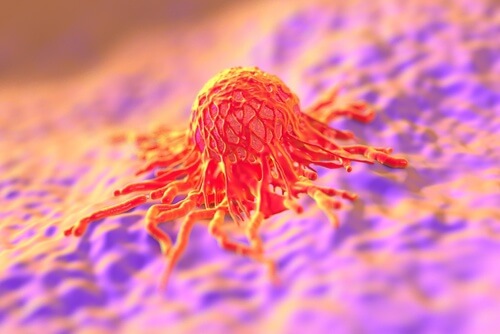
More HPV cases
The Human Papiloma Virus has spread quickly. Doctors have confirmed that this disease is, in most cases, transmitted without the individual even knowing about it (because there are no obvious symptoms), or simply because of a lack of information. Adults who shave are considerably increasing their possibility of infection.
Fashion is just fashion
Many women like the idea of getting rid of their pubic hair. But you need to feel you have to do this just because it’s the current fashion, or because you think that just because others do it, you should too.
If you don’t feel comfortable, or if it hurts too much, it’s best to leave it as it is.
Pay attention to skin diseases
Psoriasis or eczema can be aggravated by shaving. If you have these skin conditions, it’s best to see a doctor to find out the best way to remove your hair. If you don’t, you could aggravate the situation and experience a lot of discomfort and pain because of it.
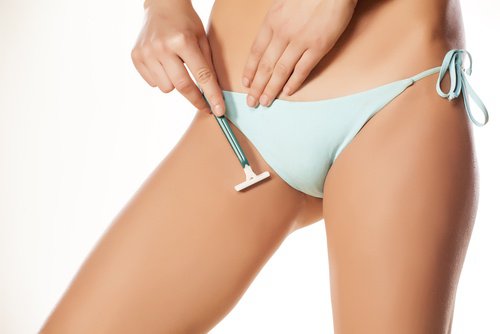
Shaving isn’t more hygienic
This is one of the most widespread myths out there, and it makes more and more women want to completely shave their pubic hair. Bad odor has nothing to do with the amount of genital hair, but far more to do with personal hygiene.
It is not an aphrodisiac!
It’s true that a lot of women feel more confident with a shaved vaginal area, and believe they have better sex because of it. But sexual satisfaction really has nothing to do with the amount of pubic hair you have.
It often depends on the couple’s preferences. A lot of guys like it when women shave completely, but there are also a lot of guys that prefer things to be natural, hair and all!
Advice if you still prefer shaving
If nothing that you have read has convinced you to stop removing or shaving your pubic hair then maybe it’s because you feel more comfortable without it. It’s not a problem! If you feel this way, we’ll recommend a few good habits to make sure that this decision causes as few problems as possible.
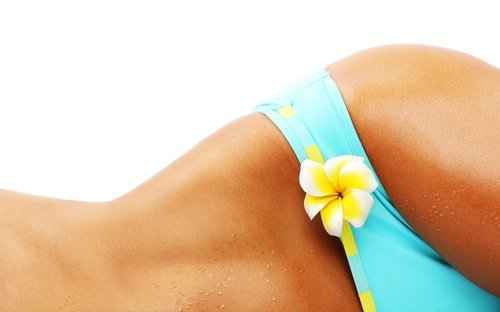
Shave bit by bit
If you’ve never shaved your pubic hair before, it’s best to start bit by bit. This way you’ll experience less pain or side effects. Start by cutting the hair with scissors, and go on to shaving and waxing.
Think about how you feel
You may have decided to completely shave because your partner asked you to, you’re going on vacations, or simply because you want to try something new. Compare the way you feel with how you felt when you had hair.
Pay attention to irritation
It doesn’t matter which method you’ve chosen to remove your pubic hair. Don’t ignore the effects it has on your skin. If it turns red, burns, or is uncomfortable, use a good moisturizer.
Also check to see if you have ingrown hairs.
Don’t forget to check out:
Cotton underwear
You shouldn’t clothing made of lycra. You also shouldn’t use tight clothing (including pants). Wear skirts or loose dresses, and be careful when wearing a bikini.
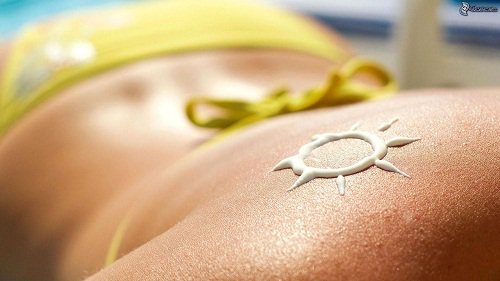
Be careful with exposure to sun
You may have shaved completely because you have a very small bikini, or because summer has kicked in. It’s not good, however, to sunbathe for the first few days after shaving or waxing. And don’t forget to prevent irritation and redness with a high SPF cream.
All cited sources were thoroughly reviewed by our team to ensure their quality, reliability, currency, and validity. The bibliography of this article was considered reliable and of academic or scientific accuracy.
- Celis, C., Hernández, I., Herrán, S., Paradas, A., Paredes, O., Vela, L., … Asturias, M. M. (2011). Results of an epidemiological survey about hygiene habits in Latin American women [Resultados de una encuesta epidemiológica de hábitos de higiene íntima en mujeres latinoamericanas]. Revista de Obstetricia y Ginecologia de Venezuela.
- Sangiorgi, M., Lara, L., Lerri, M., Ferriani, R., & Romão, A. (2017). The Preference of Women and Men Regarding Female Genital Depilation. Revista Brasileira de Ginecologia e Obstetrícia / RBGO Gynecology and Obstetrics. https://doi.org/10.1055/s-0037-1604472
- Barragán Solís, A. (2011). De los genitales femeninos. Cuicuilco, 18(51), 229-231. http://www.scielo.org.mx/scielo.php?script=sci_arttext&pid=S0185-16592011000200013
- Díaz-Martínez, L. A. (2013). Contextualización histórica y social de la remoción del vello púbico femenino. Revista Colombiana de Obstetricia y Ginecología, 64(4), 453-461. https://www.researchgate.net/publication/258994650_Contextualizacion_historica_y_social_de_la_remocion_del_vello_pubico_femenino
- Schild-Suhren, M., Soliman, A. A., & Malik, E. (2017). Pubic hair shaving is correlated to vulvar dysplasia and inflammation: a case-control study. Infectious diseases in obstetrics and gynecology, 2017. https://www.ncbi.nlm.nih.gov/pmc/articles/PMC5591962/
- Farage, M. A. (2011). Perceptions of sensitive skin of the genital area. In Topical Applications and the Mucosa (Vol. 40, pp. 142-154). Karger Publishers. https://www.karger.com/Article/Abstract/321066
- Mostafa, T., El Khouly, G., & Hassan, A. (2012). Pheromones in sex and reproduction: Do they have a role in humans?. Journal of Advanced Research, 3(1), 1-9. https://www.sciencedirect.com/science/article/pii/S2090123211000397
- Kim, W. B., Jerome, D., & Yeung, J. (2017). Diagnosis and management of psoriasis. Canadian Family Physician, 63(4), 278-285. https://www.ncbi.nlm.nih.gov/pmc/articles/PMC5389757/
- Trager, J. D. (2006). Pubic hair removal—pearls and pitfalls. Journal of Pediatric and adolescent gynecology, 19(2), 117-123. https://www.researchgate.net/publication/7155190_Pubic_Hair_Removal-Pearls_and_Pitfalls
- Lizano-Soberón, M., Carrillo-García, A., & Contreras-Paredes, A. (2009). Infección por virus del papiloma humano: epidemiología, historia natural y carcinogénesis. Cancerología, 4, 205-16. http://incan-mexico.org/revistainvestiga/elementos/documentosPortada/1272302572.pdf
- Synnott, A. (2003). Sociología del olor. Revista mexicana de sociología, 65(2), 431-464. http://www.scielo.org.mx/scielo.php?script=sci_arttext&pid=S0188-25032003000200006
- Pereira, M. L. N. (2007). Autoestima: un factor relevante en la vida de la persona y tema esencial del proceso educativo. Revista Electrónica” Actualidades Investigativas en Educación”, 7(3), 0. https://www.redalyc.org/pdf/447/44770311.pdf
This text is provided for informational purposes only and does not replace consultation with a professional. If in doubt, consult your specialist.








